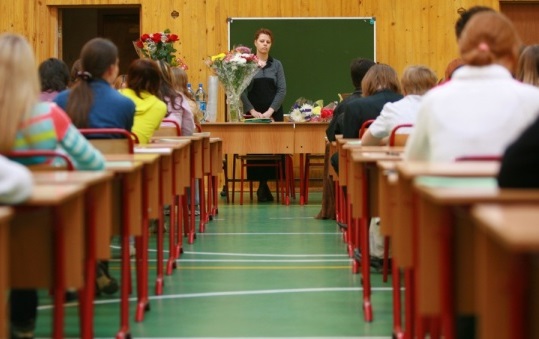Russia: Ministry of Education and Science Public Council members accuse the Russian Orthodox Church of capturing schools
Published:
According to the news agency "Vektor Obrazovaniya", Russian Patriarch Kirill suggested that schools should offer the subject "The Fundamentals of Religious Cultures and Secular Ethics" (FRCSE) from the second to the ninth grade. At the same time, social activists suggested to remove the subject from the curriculum. Members of the Public Council of the Ministry of Education and Science criticized this initiative of the Russian Orthodox Church strongly.
They pointed out that the school curriculum had already been seriously overloaded. They warned that a further expansion of the FRCSE classes would require the removal of other subjects as well as the recruitment of new teachers or further burden on the current teachers.
"The Church is acting very aggressively. It is about a real religious expansion and school capturing." - warned journalist Viktor Loshak the Public Council members - "Teachers are facing difficulties when they discuss on philosophic topics even with the fourth-graders. With older pupils it will be even more difficult." Some of the members of the Council proposed to entirely abolish the controversial discipline. However, the majority was in favour of a compromise: to abandon the division of this course on modules and to retain only one which would be called "Basic knowledge of the world religion" which could be taught even more than one year. This suggestion was supported by representatives other religious communities in Russia, too. The Russian Orthodox Church though disagreed categorically on this proposal.
After several years of public debates, in 2012 FRCSE became mandatory for the fourth-graders. Parents can now choose among one of six modules such as basic knowledge on the world religions, secular ethics, as well as the fundamentals of Orthodox, Muslim, Jewish and Buddhist cultures. According to «Vektor Obrazovaniya», during the current academic year, 45% of students chose secular ethics, 33% - the fundamentals of Orthodox culture, 18% - the world's religious culture, 4% - Islam, 0.5% - Buddhism, even fewer - Judaism.
"So far in our country there is no consensus concering the reasonability of teaching religious subjects at schools. As it is correctly stated for the moment it was agreed on a general course about the history of the main religions. Our trade union has no position on this issue and we do not participate in the discussion" says International Secretary of ESEUR Nikolai Kolobashkin.
For further information use the following link: http://eduurfo.ru/news/index.php?ELEMENT_ID=23853 (in Russian only)